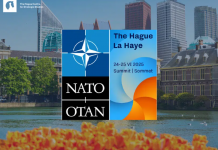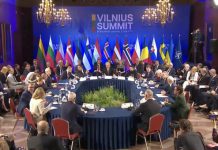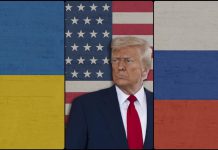August 6, 2007 (Info-prim.md)
By Andrei Popov,
Executive Director, Foreign Policy Associationof Moldova (APE)
At a press conference on July 25th President Vladimir Voronin spoke in ratheroptimistic terms about the possibility of liberalising visa regime with the EUby the end of this year, so that Moldovan citizens could travel in theSchengen area in the same conditions that citizens of the new EU member statesdo”. In particular, President Voronin made following points:
The Visa FacilitationAgreement with the EU is already in force. Now work is being done to extend itsprovisions over all categories of citizens and to obtain full visaliberalisation regime like other EU member states have”. European Union wouldhave promised Chisinau that by the end of this year it will try to settle in apositive way this issue. For this it is important to convince not only theBruxelles, but also all EU member states and that to this end,
Mr. President is right in one thing: when hestresses that it is important to work with all EU member states, not only withBruxelles. It is so. […] The rest of Mr. Voronins statements are indivorce with reality: The Visa Facilitation Agreement is not in force. Thiswill happen only in January 2008. The European Union has never promised that itwould help us obtain visa liberalisation and even less so by the end of thisyear.
Lets take a more detailed look at thissituation and start with clarifying the status of the Visa FacilitationAgreement. This document was initialed on April 25 and will enter in force inJanuary 2008, after it would be signed and ratified. It envisagessimplification of the procedure of obtaining visas only for a number ofcategories of persons, visa free access for holders of diplomatic passports,keeping the visa fee at the current level of 35 euro and fee-exemption incertain cases, multi-year visas with longer period of validly for those whotravel frequently and a series of other facilities of a secondary nature (forexample, reduction by several days of the visa request examination period).Inparallel with Moldova, the European Union negotiated and initialed similaragreements with all Western Balkan countries (except Croatia that has visa freeregime). Such an agreement has already entered in force with
Moreover, Moldovan document practically wasntthoroughly negotiated at a technical level, but was initialed following minorchanges based on the draft proposed by Bruxelles. In reality, the Agreementwith
Some European experts assert that if
After the initial shock, the EuropeanCommission warned
Following this, Moldovan position changed overthe night. Without obtaining anything but a damaged image of an unseriouscountry and with a maneuver room reduced to minimum,
One can understand the motives why PresidentVoronin speaks of the need to obtain a complete visa liberalisation regime withthe EU. Undoubtedly the much desired abolition of the visa requirement forentering the Schengen area și similar to what
Motives could be understood but notjustifiedThe visa facilitation regime that enters into force in January 2008doesnt solve this problem. It covers only a limited number of categories ofpeople, probably about 5-7% of those interested. Under these circumstances, theRomanian passport naturally appears for many like the only hope to be able totravel freely and in decent conditions to
The leadership of the
These statements and, in general, Chisinausinsistence on obtaining a travel regime identical to that of the new memberstates” could not represent convincing arguments in favour of obtaining visaliberalisation regime. Instead, they could only demonstrate that Chisinaudoesnt understand the way EU functions and takes decisions.
For example, it doesnt understand that todaythe EU is not prepared to give anything more than visa facilitation regime,even to countries of the Western Balkans (except Croatia), although theirrelations with the European Union are more advanced than of Moldova. It doesntunderstand that from the political point of view, for the EU it is impossibleto create now a precedent with
For all these motives, Chisinaus insistence onimmediate visa liberalisation is a false road, a dead end and a perilousmirage. We cant succeed on this road, neither today, nor in the next 2-3years. The latter official Chisinau understands this, the worse it would be forthe country, because it would further discredit itself and waste in vainlimited resources, instead of concentrating on what can be changed and whatdepends first and foremost on internal possibilities.
And for visas, Europe should be built inMoldova
Bringing closer the day when citizens with blueMoldovan passports could travel freely to
It was exactly in terms of developing such kindof relationship between Moldova and the European Union, realist and responsibleone, that President Voronin spoke with leaders of the European Union inBruxelles and Luxemburg on June 18-19: before advancing any new requestsMoldova first should demonstrate that it can take full advantage of allpossibilities offered by existing frameworks and mechanisms of cooperation.
Then why did Mr. President make these strange”declarations at his press conference on July 25 claiming that
Part III.
To force the
ay be Mr. President deliberately distorts thetruth, thinking that such promises could lift peoples morale and give them newhopes. This might be so, but only in the short run. But they also increasetheir expectations. What will happen after, when it would become clear thatthese were just some nonrealistic expectations based on empty promises? Wouldntit lead to an even bigger disillusionment?
Or, may be, it is a tactical move, a situationartificially created to attempt to force the hand of the European Union,saying: Gentlemen, we are sorry, but we have no other option but to find asolution, because we have already promised to the people and we cantdisappoint them?”
Or, may be, Mr. President lost touch withreality and, simply, no longer understands what is going on in this importantforeign policy file, while the professionals” that should have helped him tounderstand, dont do their job properly (Either out of the lack of courage, orbecause they are themselves prisoners of some illusions in this matter)?
In case of the visa regime with the EU, butalso more generally in what regards Moldovan policy towards the
However, very much contrary to what Presidentsaid in very positive terms about this conference, its organisation in themidst of European vacation is not at all such a good idea for the followingreasons:
TheEuropean Union expects from Chisinau not conferences, but reforms and concreteactions. Therefore, in Bruxelles and in many European capitals the idea ofholding such a conference was a negative surprise and is likely to receive thefollowing reaction: instead of focusing on reforms,
Everythingthat the EU had to say on this subject was already conveyed to
Evenif one decides to organise such an event, one must first consult those on whoseparticipation it relies and with whom one thinks to co-organise it (inBruxelles, by the way, and not in Chisinau, as President mistakenly announced).Not only this was not done, but key actors from the Commission and the Councillearned about this conference very late, practically simultaneously withMoldovan journalists. Worse, some important countries and, apparently, evenPortuguese EU presidency, were initially not invited at all, and receivedletters from Chisinau only several days ago.
Nothingclose to more then half of deputy ministers who had already confirmedattendance”, as Mr. Voronin declared. It is just not true. And it looks veryuncertain that Portuguese presidency or some of the most important Europeancountries would sent their vice-ministers. It is also highly improbable thatthe most appropriate person for a meeting at such level, a deputyDirector-General in the Commission responsible for European Neighborhood Policyand relations with our region, would be able to come.
Eventsof such importance are not organised in a few weeks and at dates arbitrarilychosen depending on Chisinaus agenda. There is a need for months of thoroughpreparations to identify an optimum timing and ensure that those invited havetime to pencil it in their busy schedules. Besides, todays EU agenda isoverloaded with a number of pressing subjects și from Kosovo to
And,finally, an important detail that seems to have escaped the organisers:Friday, August 24 is in the midst of the summer vacation and is probably themost unsuitable time, after Christmas and New Year, to organise such an eventin
Are there no competent and honest people aroundPresident who could tell him what is the real state of affairs and who couldtell him, at least from time to time, that the king is naked”? If not for thesake of the countrys interests, at least for that of Presidents own image.
http://www.info-prim.md/?a=10&x=&ay=9662
http://www.info-prim.md/?a=10&x=&ay=9687






